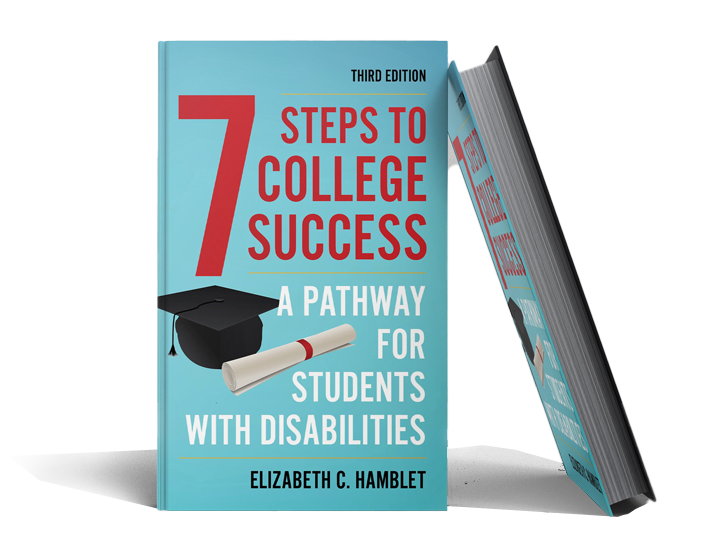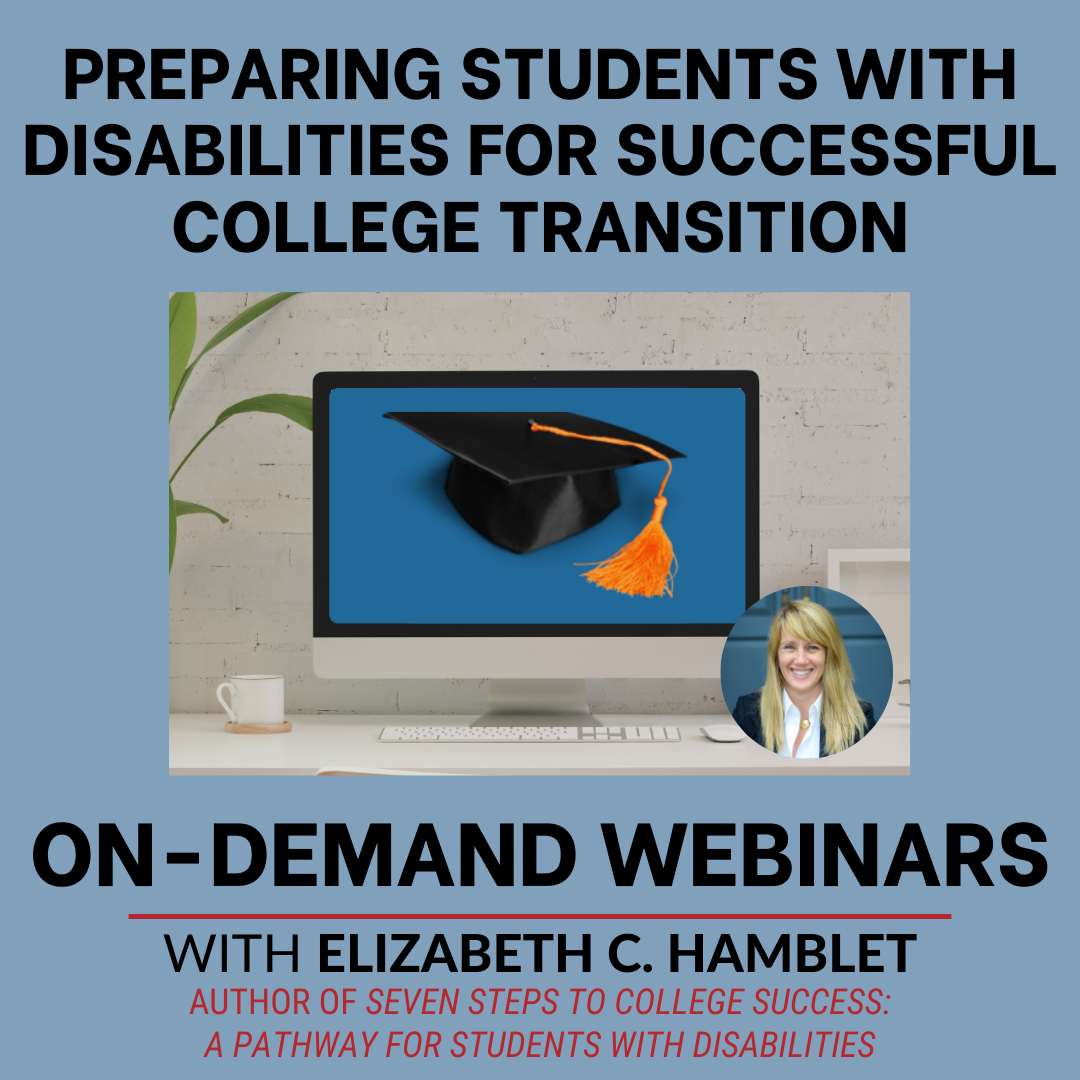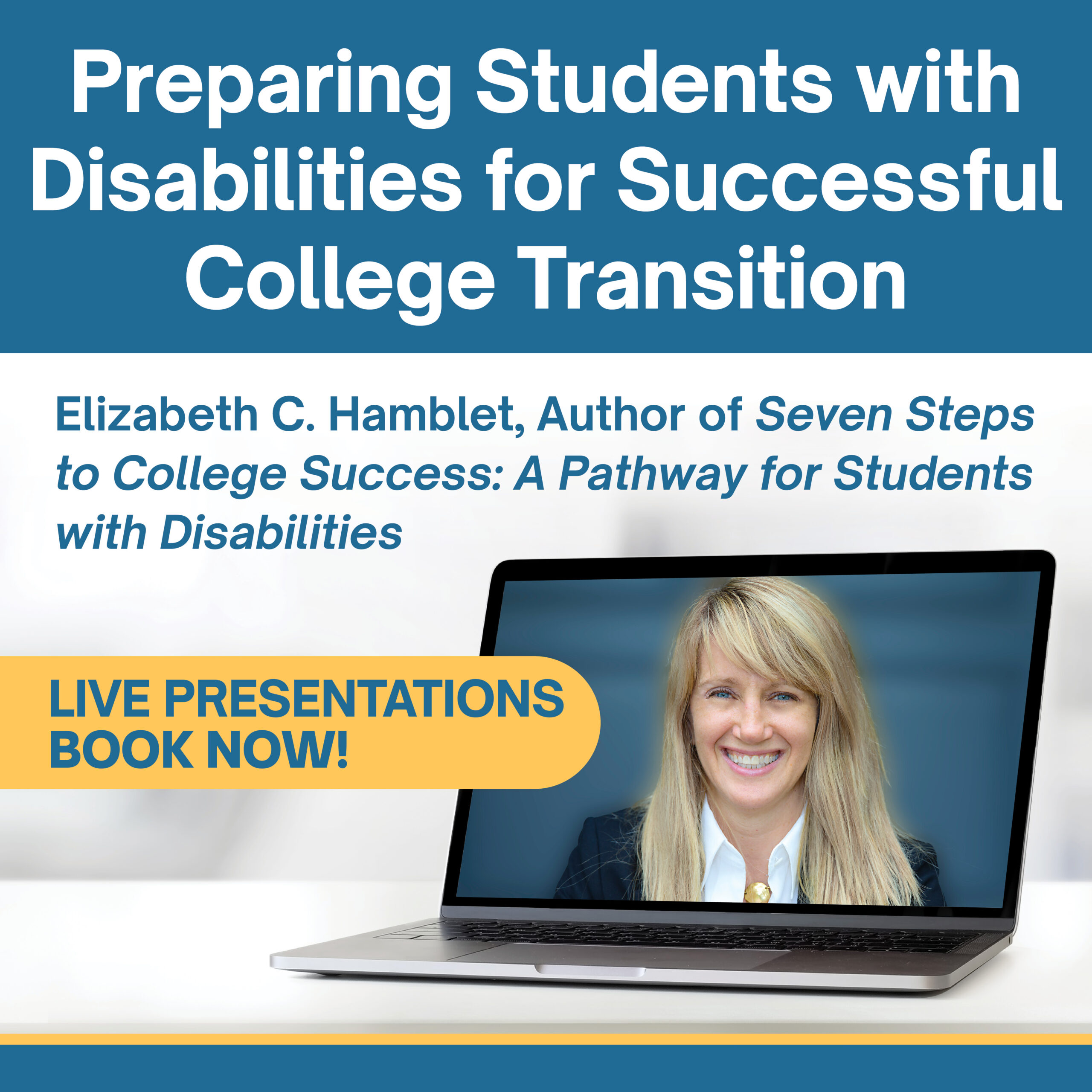Introduction
In another post on my blog, disability service directors I interviewed for my book talk about what qualities they see in students who are successful at college. It’s equally important to know what they see in students who aren’t successful, too, so that parents and professionals can talk to high school students realistically about what they will need to do (and avoid) if they hope to do well, and to help them develop the skills they’ll need for success.
Q. What qualities do you see in students who are not successful?
Stacey Reycraft is Director of Student Disability Services at the University of Mississippi
Those students who have been heavily accommodated to the point that there were modifications of requirements tend to struggle, since we don’t offer modifications.
Students who have not achieved a certain level of independence also tend to struggle. They’ve never been responsible for taking their medication – parents always reminded them. They haven’t had to wake up by themselves. They haven’t studied without a tutor by their side. (Most colleges don’t offer specialized tutoring as a disability accommodations. Students can see the same tutors as their neurotypical peers. Either way, they’re unlikely to get more than a handful of hours a week.)
Students who are not comfortable about having a disability also struggle; they lack self-advocacy skills. They don’t know their diagnosis and can’t talk about it. They don’t know how it affects them. They’ve never sat in on one of their high school IEP meetings.
Marvin Williams is Director of Disability Resource Services at CSU Stanislaus
These are the students who typically aren’t ready to self-advocate. At their intake meeting with us, they let their parents do all the talking, and maybe they agree with a few things their parents say, but they’re not ready to speak for themselves.
Sometimes, students aren’t successful because they don’t want to be here. And as a result, they don’t do what they need to in order to be successful.
Some students may be in denial over their functional limitation. They may realize they have a disability but they are determined to succeed by denying it. For instance, if I have dyscalculia, and I want to be a math major, I’m running headlong into a major that’s going to challenge me. And there are accommodations that will help, but maybe I don’t want to use them. I’ve seen students do this.
Then sometimes, they don’t come to ask for accommodations until they’ve already been on probation and they are about to get kicked out. They tell me they wanted to try college without them but now they want them. They can start with accommodations at that point can’t do anything about what happened before that point.
Paul Harwell is Associate Director of ADA and 504 Compliance at Dartmouth College
They’re students who aren’t realistic about how much they can handle. And they don’t seek help when they need it. Not everyone needs to complete their degree in four years, and not everyone can take a full time load. Students need to find the balance that works for them, and commit to it.
Margaret Camp is at Director of Student Asscessibilty Services at Clemson University
They tend to be students who struggle with organization and time management. I see a lot of really smart students who don’t do well because they lag in those skills.
Jamie Axelrod is Director of Disability Resources at Northern Arizona University
Usually, these are the students who are really not utilizing what’s available to them. They may have certain have certain needs that could be addressed by other academic support programs on campus but they don’t seek them out. They also tend not to engage with faculty.
Deborah S. Braswell was Director of Disability Support Services at the University of Montevallo at the time of her interview
They tend to be students who are unable to be realistic and focused regarding their strengths and weaknesses. They fail to ask for help the minute it’s needed. For example, we sometimes see students who fail test #1 but still choose not to use accommodations or ask for tutoring so they “can see how test #2 goes.” Such students often find themselves in such a deep hole that there is no recovery.
Students who don’t do well tend to skip classes (which can happen gradually but then suddenly they find they have exceeded limits on absences or are so behind they cannot catch up).
Some decide to abruptly stop meds for ADHD or mental health conditions without talking with treatment providers or family helping them assess their progress. Another factor can be lacking the desire to be successful.
There are students who are simply not ready for the commitment college study demands. They have been swept up in the expectations of family, their high school, or even their friends, but they are just not interested enough to put in the time.
Spencer Scruggs is Director of the Center for Accessible Education at UCLA
They tend to be students who aren’t confident in who they are. They measure themselves against everyone else. They think their way of learning isn’t valid because of the way things are often set up. They hold themselves to expectations that are arbitrary.
Jorja Waybrandt was Coordinator of Accessibility Services at the University of North Carolina School of the Arts at the time of her interview
They tend to be students who need a lot of handholding, lack self-efficacy skills, or have always had everything taken care of for them by someone else.
They may have the mindset that they are perfect and know everything and then struggle or assert blame when they fail. Essentially, they are closed to learning.
Some never learned to self-advocate for themselves. Before they came to college, parents, teachers, guidance counselors, etc., took care of everything for them so when something goes wrong in college, they blame everyone else. They don’t recognize that it’s their decisions whether or not to reach out for resources, how they use time, etc., that make the difference in their level of success.




